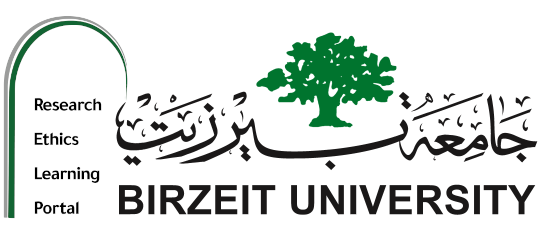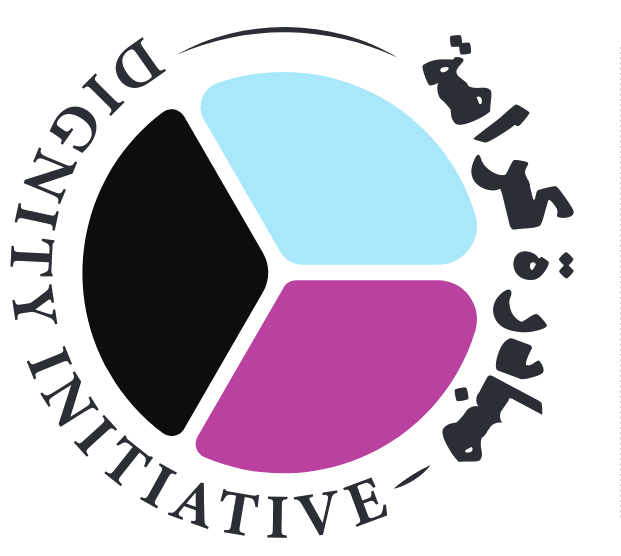Details of Modules and Tracks
Elements of the Research Ethics Learning Portal
The learning portal includes seven modules (described below in table no.1). Each module presents pivotal principles and issues concerning scientific research ethics and reviews learning case studies from the fields of social sciences and humanities; medical and natural sciences; architecture and technology (the use can select one when case studies are presents), followed by interactive questions aimed at illustrating the principles under discussion to be able to use them in particular contexts. The portal includes seven tracks (described below in table no. 2), to which users are directed according to their needs and the nature of their research tools (data collection from humans; on humans; or the absence of data collection), and legal capacity of research participants. Each track, except the general review track, awards users with a certificate confirming completion.
Table no. 1
Topics of the research ethics learning portal and their distribution by tracks.
|
|
|
First Track |
Second Track |
Third Track |
Fourth Track |
Fifth Track |
Sixth Track |
Seventh Track |
|
Module 1 |
Introduction on scientific research ethics |
* |
* |
* |
* |
* |
* |
* |
|
Module 2 |
Evaluating Feasibility |
* |
* |
* |
* |
* |
* |
* |
|
Module 3 |
Informed Consent |
* |
* |
* |
* |
* |
* |
- |
|
Module 4 |
Security and Privacy |
* |
* |
* |
* |
* |
* |
- |
|
Module 5 |
Ensuring Justice during the Research Process |
* |
* |
* |
* |
* |
* |
* |
|
Module 6 |
Conflict of Interests |
* |
* |
* |
* |
* |
* |
* |
|
Module 7 |
Ethical Review Process |
* |
* |
* |
* |
* |
* |
* |
Table No. 2
Track description in the research ethics learning portal
|
Track number |
Track title (registered in the certificate) |
Track description |
The number of hours required to complete the track (according to actual average rate) |
|
1 |
General review track |
This module is designed as an overview of the learning programme without exams. No certificate is issued for completion. |
8 |
|
2 |
Track designed for members of ethical review committees |
This module is the most comprehensive in the portal. It contains 7 units that include comprehensive learning content on ethical scientific research design and implementation with a particular focus on the duties of ethical review committees and the limits of their authority. |
12 |
|
3 |
Track designed for studies including gathering data from people lacking legal capacity |
This module contains 7 units covering the general principles of research ethics and their application in the design and implementation of research projects. It mainly focuses on issues related to data collection* from people lacking legal capacity** through questionnaires or interviews. |
20 |
|
4 |
Track designed for studies including collecting data on people lacking legal capacity |
This module contains 7 units covering the general principles of research ethics and their application in the design and implementation of research projects. It mainly focuses on issues related to data collection on people lacking legal capacity through observation (including participatory observation, naturalistic observations, human-sample testing, x-rays, electrograms, and so on). |
20 |
|
5 |
Track designed for research including collecting data from people with legal capacity |
This module contains seven units covering the general principles of research ethics and their application in the design and implementation of research projects. It mainly focuses on issues related to daya collection from people with legal capacity through questionnaires or interviews. |
18 |
|
6 |
Track designed for studies including data collection on people with legal capacity |
This module contains seven units covering the general principles of research ethics and their application in the design and implementation of research projects. It mainly focuses on issues related to data collection on people with legal capacity through observation (including participatory observation, naturalistic observation, human sample testing, x-rays, electrograms and so on). |
18 |
|
7 |
Track designed for studies not involving human interaction |
This module is the shortest in the portal (containing six units). It focuses on learning issues of scientific research ethics in research projects in which researchers do not collect data on or from humans. Instead, the methodologies include reviewing, analyzing and/or processing data publicly available. |
13 |
* Data collection: this portal categorizes data collection methodologies based on the will of non-researcher participants and their control over the data they disclose. This results in either collecting data on humans, which involves exposure beyond the participant’s control after consenting to participate in the research. For example through participatory observation, naturalistic observation, human sample testing, x-rays, electrograms, and so on. Or collecting data from humans, i.e. obtaining data whose owners decide to disclose or conceal fully or partially, lie about it or refrain from answering for example through questionnaires or interviews.
** People lacking legal capacity: people who are unable to make informed decisions (due to their age, health, physical or psychological condition). Therefore, their participation in the research requires the approval of and/or mediation of a third legally-approved party such as a parent or legal guardian. This group includes children, people with cognitive or psychological impairments, coma patients and amnesiacs.



